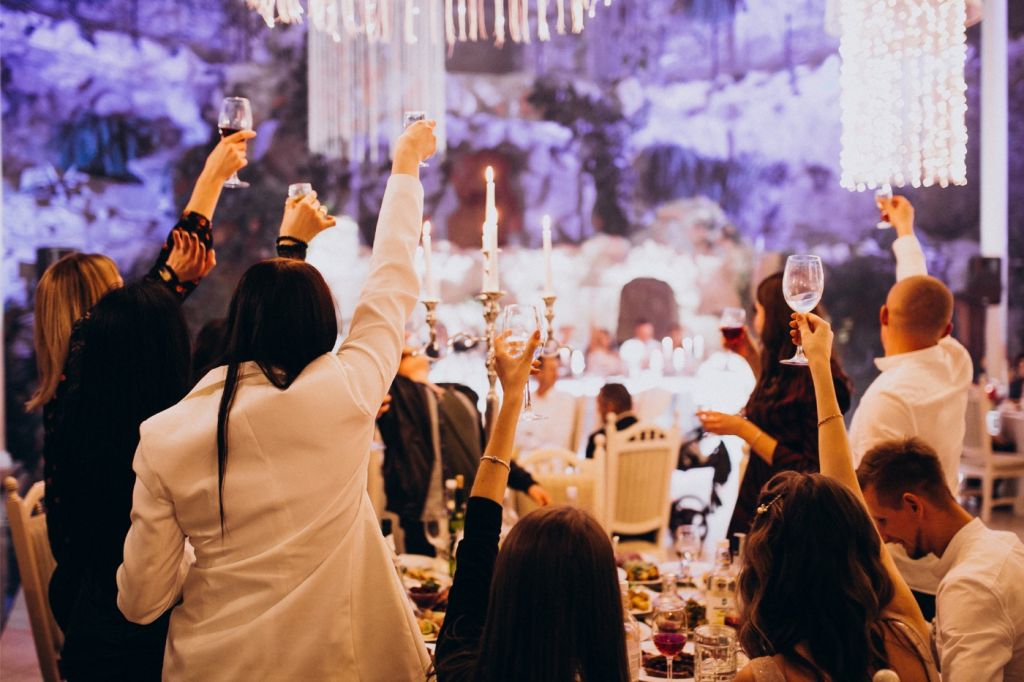When planning your wedding, one aspect that can often cause a bit of confusion is tipping etiquette, especially when considering the key role of a maitre d'. This article explains maître d' tipping etiquette for weddings.
The customary tip for a maître d' at a wedding ranges from $1 to $5 per guest or a flat amount of $100 to $300, depending on the size of the wedding and the level of service provided.

When planning your wedding, it's important to recognize the role of gratuities in expressing appreciation for the service providers who contribute to your special day.
Effective tipping involves more than just deciding on an amount; it’s about understanding the etiquette that governs this practice at weddings. It's usual to provide a tip as a gesture of thanks for exceptional service. However, remember that some contracts may include gratuity, so it’s crucial to read the fine print to avoid doubling up on tips unnecessarily.
The maitre d' holds a significant responsibility in ensuring the smooth operation of your reception. They often go above and beyond to cater to your needs, make last-minute adjustments, and keep everything running on time. Acknowledging their efforts with a tip is a common practice.
Understand the difference between service fees and gratuity. You may find a service charge included in your contract, typically around 18%-22%. However, this fee might not go directly to the service staff as a tip. Therefore, consider offering an additional amount to the maitre d', typically suggested as $5-7 per guest.
Before deciding on the appropriate tip for your maitre d', it is essential to understand their role at your wedding. They are pivotal in ensuring everything runs smoothly, directly impacting your experience and the success of your special day.
The maitre d' is instrumental in creating a seamless and enjoyable experience. They work behind the scenes to keep everything in check, allowing you to focus on celebrating your wedding day.
It can be confusing to distinguish between the banquet manager and the maitre d', as their roles may overlap.
When considering a tip, remember that your maitre d' ensures the wedding planning pays off during the event, addressing any unforeseen challenges discreetly and professionally.
When planning your wedding budget, it's important to consider gratuities for service staff, including the maitre d'. Knowing the appropriate tip to give can help ensure that your budget accurately reflects all your wedding expenses.
Your maitre d' plays a crucial role in the success of your wedding reception, often ensuring that the event runs smoothly. A tip is a traditional way to acknowledge their exceptional service. As a general rule, you might consider a tip amount ranging from $100 to $200 for your maitre d'. This is not a fixed rate and should align with your wedding budget and the level of service provided.
The tip you give can vary based on several factors:
To further clarify tipping your maitre d', here are some examples of how you might calculate their tip:
Remember, tipping your maitre d' is a gesture of appreciation for their dedication to making your wedding reception a memorable event. Ensure that you are comfortable with the amount, and consider giving the tip in cash for a more personal touch.
As you plan your wedding budget, it's vital to remember that tipping your vendors, including the maitre d', should be part of your overall expenses. Below, find specific steps to seamlessly integrate these tips into your wedding financial plan.
To prevent any last-minute financial surprises, you must earmark a portion of your wedding budget solely for tipping. A common approach is to set aside 2-3% of your total budget for tips. For a maitre d', a suggested tip is typically $1-3 per guest or a flat rate up to $200 for smaller weddings.
Tips are traditionally given at the end of the reception. You can entrust a family member or your wedding planner to distribute tips to ensure each vendor receives their gratuity promptly, allowing you to focus on your big day.
Use the following structure as a guide for distributing tips:
By allocating funds for tips ahead of time, you can ensure that all your vendors are acknowledged without disrupting your wedding expenses.
When planning your wedding expenses, remember that showing gratitude to your vendors through tipping is customary. Ensure you know the recommended amounts, so your tips reflect your appreciation appropriately.
For a comprehensive understanding of appropriate tipping amounts, you might want to look into a detailed guide to gratuities.
It's essential to check if gratuities are already included in your contracts to avoid tipping twice. The act of tipping is a personal choice and should align with your level of satisfaction and budget.